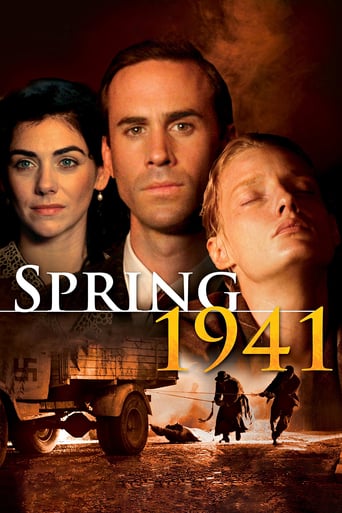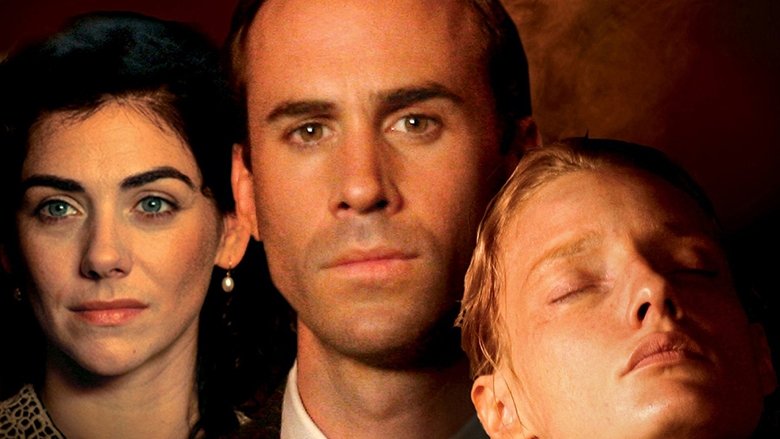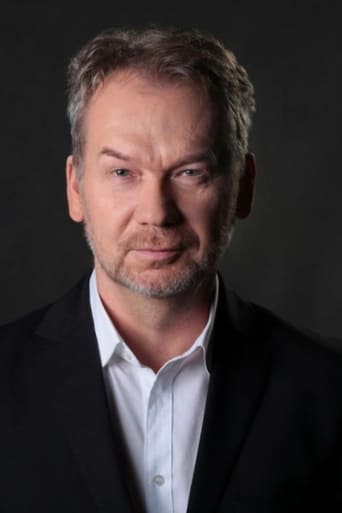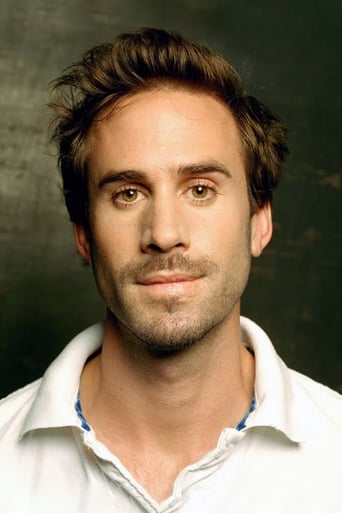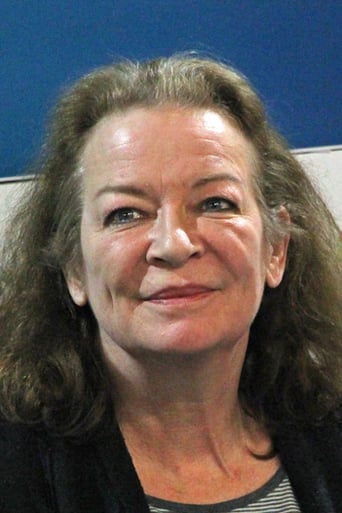Spring 1941 (2009)
After Germany invades Poland and the Nazis order the confinement of all local Jews in the ghetto, medical doctor Artur Planck (Joseph Fiennes) manages to flee with his family, seeking refuge at the farm of Emilia (Kelly Harrison), their former grocer. With the Planck family hiding in her attic, Emilia finds her feelings for the physician growing stronger than she wants, or can control -- despite the dangers of the situation.
Watch Trailer
Cast
Reviews
Yawn. Poorly Filmed Snooze Fest.
Must See Movie...
I like movies that are aware of what they are selling... without [any] greater aspirations than to make people laugh and that's it.
This film is so real. It treats its characters with so much care and sensitivity.
The film in a serious subject, but far too often the shaky cam forces the audience to look away missing much of this movie. If you like nausea and headaches check it out. Otherwise simply skip this one. Its really surprising to me that in a day in age when there is so much hardware available to directors to keep video smooth and professional that something like this could ever get made. Directors and Investors: It doesn't matter how good your script is, if you make your movie look like a middle school phone camera youtube video, we can't watch it.
In 1971 Poland, older cello player Planck is greeted as a returning triumph with her daughter. In 1941 Poland, doctor Artur Planck (Joseph Fiennes), his wife Clara (Clare Higgins) and their two daughters are trying to escape the coming Nazis. One of the girls is killed. They find shelter at Emilia (Maria Pakulnis)'s farm house. She's the local grocer whose husband is lost in the fighting. While Clara is forced to stay in the attic, Emilia gets romantic with Artur and tells people that he's her cousin.This Holocaust story could have been made more intense. There is a slight tone problem. It strays too far into love triangle territories. Those parts should be treated with more matter-of-factness. Every hurt feeling and every hesitation adds an unwanted melodramatic feel to the movie. This should have been more tense.
The filmmakers went to the trouble of shooting much of this movie in Poland, and maybe they benefited from something invisible in the atmosphere but there is rather little happening outdoors in the movie and I couldn't have told whether it was shot in Poland or in Poughkeepsie. Because so much of the film occurs in the small space of a peasant's hut, you could mistake it for a stage play with a few cinematic scenes tacked on. And the screenwriter, Motti Lerner, does in fact write mostly for the stage. It could be that audiences were surprised by the relative weight of the indoor part of the story, where everything depends on the interaction of the actors and their movement in a space no bigger than a stage; and by the relative weight of the interplay between the characters living in fear of the Nazis, as opposed to actual encounters with the Nazis themselves. But if you accept that the emphasis lies where it does, then you'll certainly be glad that for once Uri Barbash directed a script by an independently successful playwright rather than by his brother Benny (no offense intended). The actors do a great job of selling the story, and the script does a great job of showing a human dilemma of conflicting priorities with life and death at stake.
Renowned composer and musician returns to Poland with her daughter for the opening of a concert hall dedicated in her honour. She in turn seeks out a country farmhouse and its owner, but is left in no doubt that she is not welcome there.Another movie told in flash-back, this follows the plight of Jewish surgeon Artur Planck, his wife Clara and their family as they seek to escape persecution in occupied Poland. Based on the life of composer Ida Fink, it paints a very bleak picture indeed, and a very complex one, emotionally.Rural Emilia is forlornly awaiting her husband's return from the front and she takes the family in, giving them shelter in her loft.Now here it begins to get a bit tricky. Emilia has long held a torch for Artur (she confesses to him that she had once visited his surgery for an examination while not actually being ill), and his presence here could be a mutually beneficial one, despite the danger in which it places her. His wife upstairs though is an inconvenience. On the pretext that Clara's "Jewish appearance" would be a liability if she were to be anywhere but up in the loft, and that Artur could pass as a local (a visiting brother?) she encourages him to do the necessary work around the farm and thus be in a position to spend more time with her. And he does, albeit reluctantly, for his wife is after all just upstairs. For her part though she has become resigned to survival, even at the cost of her marriage and so she sanctions this parlous and already tempestuous relationship. Emilia's expectations increase incrementally and she wants this new union to have legitimacy. Wartime yes, but Catholic Poland is still Catholic Poland.The final scenes are harrowing but answer the many questions which had been earlier posed.A very dark, but worthwhile film, though the "classic war movie" label is somewhat misleading. Rather, a movie set in wartime.
